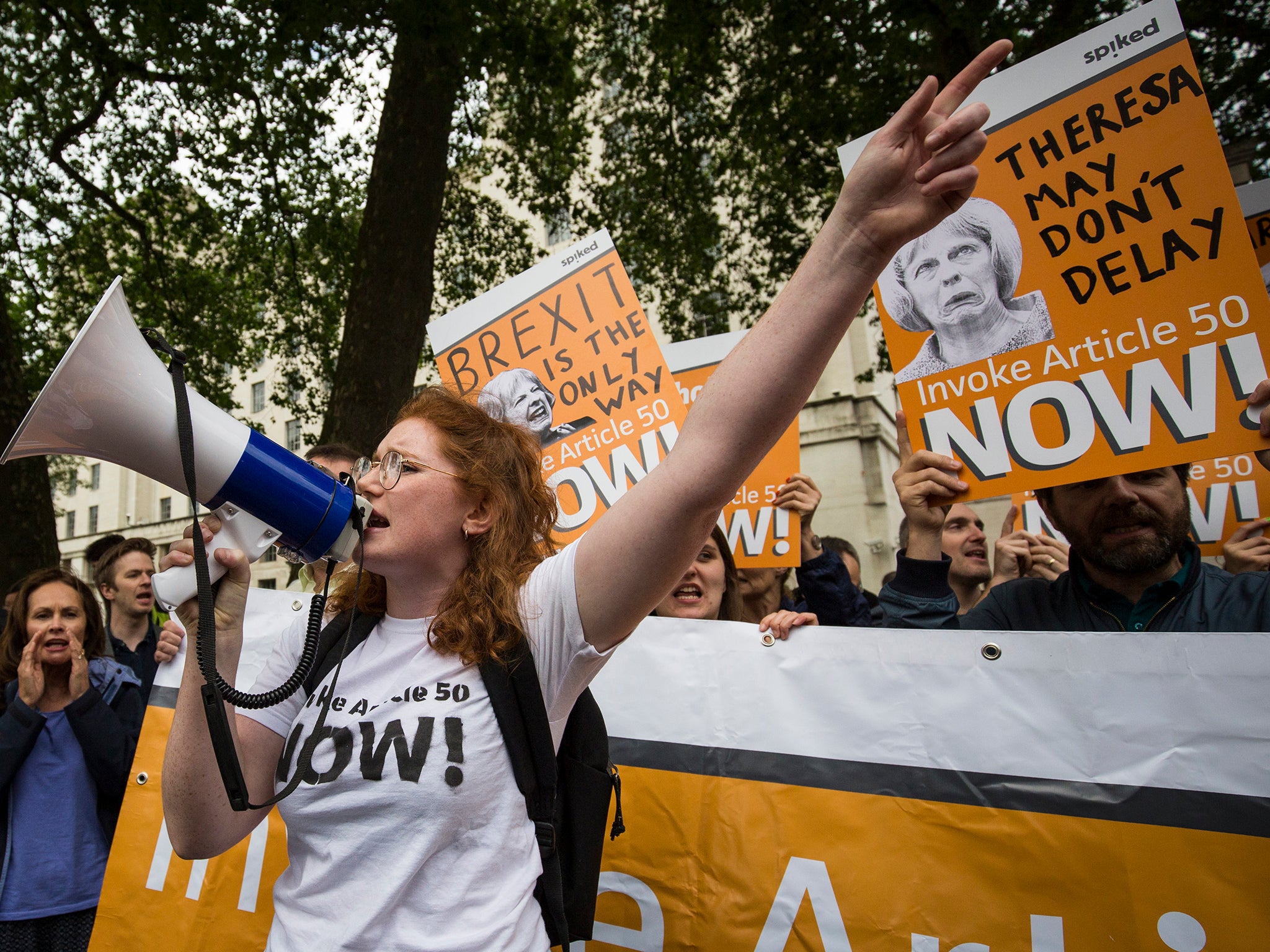Brexit: What is Article 50 and how long will it take for Britain to leave the EU?
Theresa May says mechanism to leave union will be triggered in March

Theresa May has announced she will trigger Article 50 in March 2017.
After months of speculation the Prime Minister will activate the formal mechanism to leave the European Union, meaning she will be able to start negotiations with other European leaders about what the future trading relationship with the union will be.
Confusion over the definition of Brexit has long persisted, given the various different defintitions of the term. But while that word will inevitably remain open to interpretation, defining a fundamental element of European law should, in theory, be more straightforward.
What is Article 50?
Article 50 refers to a clause in the Lisbon Treaty signed in 2007 which codified several other agreements which had brought member countries closer together in the past.
It states: “Any Member State may decide to withdraw from the Union in accordance with its own constitutional requirements.
“A Member State which decides to withdraw shall notify the European Council of its intention.
“In the light of the guidelines provided by the European Council, the Union shall negotiate and conclude an agreement with that State, setting out the arrangements for its withdrawal, taking account of the framework for its future relationship with the Union.”
Why is it so vague?
When it was first written in 2007, no one ever expected it to be used and as a result they never set a timeframe in which it had to be triggered after a country decides to leave.
As the EU referendum was not legally binding, Ms May was not under any legal obligation to trigger it despite intense political pressure to do so.
This means that until the PM's announcement, the UK was potentially facing a long period of political uncertainty.
Brexit reactions – in pictures
Show all 10Why is it so important?
Without first triggering the clause, the UK cannot negotiate any terms with the EU about its departure.
After it is triggered, the UK will have exactly two years to negotiate a new settlement before it has to leave.
Complexed trade deals often taken much longer to negotiate – with a trade deal between Canada and the EU currently seven years in the making.
During this two-year period, Britain must decide its negotiating position and whether it will want a “Hard Brexit” - minimal ties to the EU with no freedom of movement and no access to the single market - or a “Soft Brexit”, meaning a similar relationship to the one we have now.
Subscribe to Independent Premium to bookmark this article
Want to bookmark your favourite articles and stories to read or reference later? Start your Independent Premium subscription today.

Join our commenting forum
Join thought-provoking conversations, follow other Independent readers and see their replies